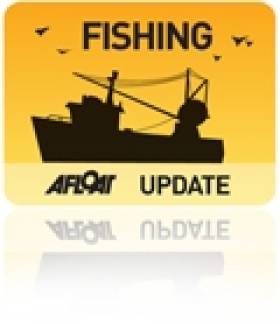Displaying items by tag: Irish Fish Producers Organisation
The Irish Fish Producers Organisation has issued a call for urgent funding for the pelagic sector, to address the loss of €28m from Brexit’s impact. IFPO chief executive, Aodh O Donnell criticised the failure to implement pelagic measures amounting to €29m.
“It’s nearly two years since the Brexit Task Force recommended these measures, and if the funding is not allocated in Ireland, it could be returned to Europe. It would be an absolute disgrace if our pelagic sector lost out on these essential funds by our Government’s failure to allocate them.”
“Ireland carried the main adverse impacts of the Brexit quota Transfers to the UK. In total, 40 % of the total value of quota gifted to the UK in the Brexit giveaway in 2020 was taken from Ireland’s quotas. In this quota transfer agreement, the main impacts related to the traditional and valuable pelagic sector with mackerel being the main species transferred.”
“Ireland’s Brexit Task Force Report valued the annual loss of Irish Quota in the Brexit Trade and Cooperation Agreement (TCA) at €43 million by 2026. Around €28 million of this is accounted for by pelagic species.”
“The EU pelagic scheme funding has been in place under the Brexit Adjustment Reserve for some time now. The IFPO cannot understand why the Irish Government is not setting up a pelagic scheme to draw it down. The resilience of the pelagic fleet is being severely tested while our Government fails to act.”
O Donnell says the IFPO recommends that the State Agencies “move proactively to deliver the EU funded supports. They need to partially mitigate the short-term and immediate impacts of Brexit, particularly for the segment which has been hardest hit.”
“We are in the last phases of the Brexit Adjustment Reserve (BAR) funding. We must act now in the overall interests of the entire fishing sector. Otherwise, the support opportunity and vital funding streams will be lost. This pelagic scheme must be prioritised and designed with criteria that take account of the losses inflicted on the pelagic sector. We call on the Minister for the Marine to act now, without delay. “
Unique Fisheries Conference Set for Galway
A unique conference - aimed at making the most of fisheries information collected from commercial fishing vessels and fishermen themselves – will take place later this month in Galway between the 23rd and 26th August.
The conference will be hosted by the Marine Institute and is being convened by Norman Graham (Marine Institute, Ireland), Richard Grainger (Fisheries and Agriculture Organisation - FAO), William Karp (Alaskan Fisheries Center – NOAA, USA) and Kjell Nedreass (Institute of Marine Research, Norway).
It will also feature a number of well known speakers from the fishing industry including Lorcan O'Cinneide of the Irish Fish Producers Organisation, Gavin Power of the Irish South and West Fish Producers Organisation, and Barry Dees from the National Federation of Fishermen's Organisations, UK.
The theme of the conference will be to find ways of harnessing the information from commercial fisheries and observations made by fishermen so as to improve scientific advice and management of marine resources, As Norman Graham observes, "every time a fisherman puts his net in the water, he's not only catching fish, he's taking a scientific sample as well."
























































